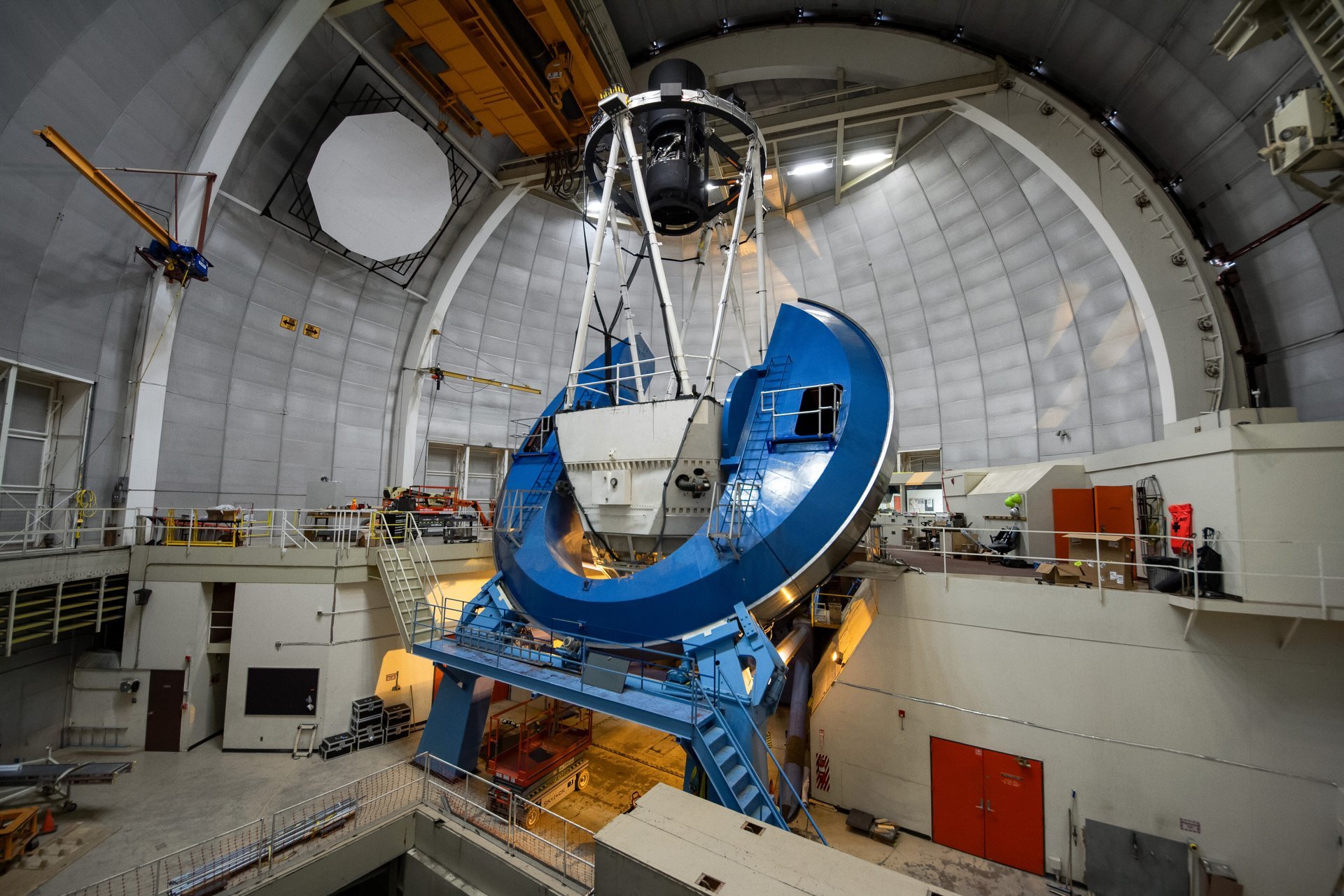Science
DESI Collaboration Unveils Potential Weakening of Dark Energy

In March 2024, the **Dark Energy Spectroscopic Instrument** (DESI) collaboration revealed intriguing evidence suggesting that **dark energy** may be diminishing over time. This finding has generated significant excitement within the cosmological community, marking a pivotal moment after years of extensive analysis. While the results are not definitive, they offer a fascinating perspective on the evolving nature of our universe.
The DESI project, which operates from **Kitt Peak** in southeastern **Arizona**, utilizes a **4-meter telescope** to conduct an extensive survey of galaxies. By employing **5,000 robotically controlled fiber optic cables**, DESI can meticulously map the positions and characteristics of celestial bodies. Since its inception, the instrument has cataloged over **13 million galaxies**, with aspirations to reach **50 million** by the survey’s conclusion.
These advancements in technology represent a significant leap from earlier efforts, such as the **Sloan Digital Sky Survey**, which relied on manual labor for similar tasks. The efficiency of robotic systems in the current survey allows for a more comprehensive collection of data and a deeper understanding of the universe’s structure.
Understanding the distribution of galaxies on large scales is vital for cosmology. Central to DESI’s recent findings are the **baryon acoustic oscillations** (BAO), a phenomenon that arose during the universe’s infancy. Approximately **380,000 years** after the **Big Bang**, the universe was a hot, dense plasma, where sound waves traveled through matter. This interplay of gravity and radiation led to the formation of regions with varying densities, which eventually created the shells of matter we observe today.
These BAO features, which span roughly **800 million light-years**, serve as a “standard ruler” for measuring cosmic distances. By comparing the expected sizes of these shells to their actual appearance in the sky, researchers can glean insights into the fundamental properties of the universe, including the nature of dark energy.
The recent DESI analysis indicates that the BAO shells do not align perfectly with established cosmological models. Instead, their measurements suggest a universe where dark energy might be evolving, raising critical questions about our understanding of fundamental forces at play.
Dark energy, believed to constitute about **68%** of the universe, is a mysterious force driving the accelerated expansion of the cosmos. If its properties are indeed changing, this could profoundly alter our comprehension of the universe’s fate and its ultimate evolution.
As scientists continue to investigate these findings, the implications for cosmology and our understanding of the universe could be transformative. The DESI collaboration remains committed to expanding its catalog and refining its analyses, ensuring that this groundbreaking research will continue to influence the field for years to come.
-

 Top Stories1 month ago
Top Stories1 month agoNew ‘Star Trek: Voyager’ Game Demo Released, Players Test Limits
-

 World1 month ago
World1 month agoGlobal Air Forces Ranked by Annual Defense Budgets in 2025
-

 World1 month ago
World1 month agoMass Production of F-35 Fighter Jet Drives Down Costs
-

 World1 month ago
World1 month agoElectrification Challenges Demand Advanced Multiphysics Modeling
-

 Science1 month ago
Science1 month agoTime Crystals Revolutionize Quantum Computing Potential
-

 Business1 month ago
Business1 month agoGold Investment Surge: Top Mutual Funds and ETF Alternatives
-

 Entertainment1 month ago
Entertainment1 month agoFreeport Art Gallery Transforms Waste into Creative Masterpieces
-

 Top Stories1 month ago
Top Stories1 month agoDirecTV to Launch AI-Driven Ads with User Likenesses in 2026
-

 Lifestyle1 month ago
Lifestyle1 month agoDiscover Reese Witherspoon’s Chic Dining Room Style for Under $25
-

 Health1 month ago
Health1 month agoGavin Newsom Critiques Trump’s Health and National Guard Plans
-

 Science1 month ago
Science1 month agoRemembering David E. Brest: A Life Dedicated to Nature and Family
-

 Lifestyle1 month ago
Lifestyle1 month agoLia Thomas Honored with ‘Voice of Inspiration’ Award at Dodgers Event








